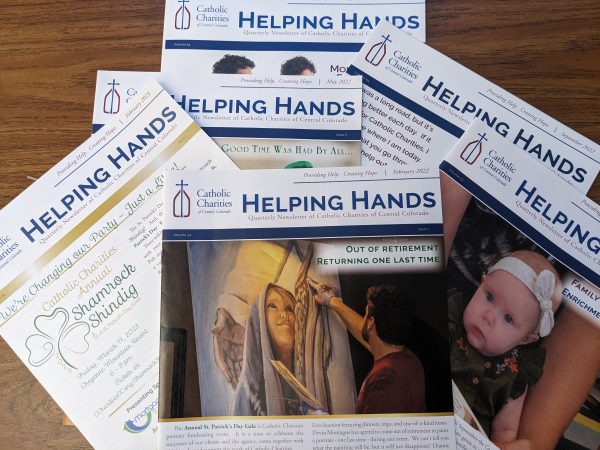
BY ANDY BARTON
I was reading at a Starbucks on the northeast side of Colorado Springs one morning last month when a teenage couple walked into the cafe. The girl was pulling a large suitcase and was wearing a baggy beige Cabela’s sweatshirt with pictures of deer and oversized grey sweatpants. The boy was similarly unkempt wearing jeans three sizes too big and a dark, zip-up hoodie with pictures of marijuana leaves down the sleeves. His black hat was pulled low across his forehead so that his eyes disappeared behind the bill. The girl ordered and they went onto the patio to smoke as they drank, leaving the suitcase inside.
Over the following thirty minutes, my mind and gaze kept coming back to the couple. It was impossible to judge their housing situation but there was transience and instability in their disposition that indicated something was amiss. They were sitting on the curb when I walked out to my car. The boy had his head between his knees with his shoulders heaving slightly. His young partner was sitting next to him, rubbing circles on his back, and comforting him with words spoken too softly for me to hear. I continued to my car and drove away to my next appointment.
It would be disingenuous of me to say that I felt compassion for those two teens because I did not stop to ask if they were okay. I only showed pity and sorrow, which they did not see, nor did it help them at that moment. In the days since that encounter, I have experienced increasing regret for my lack of action, and it triggered some fundamental questions about how I respond to people in need. Those questions led me to seek counsel from a good friend, Deacon Dave Sekel, and from the Book of Luke, chapter 10: the Parable of the Good Samaritan. It is one of the most repeated stories in the Bible. Hospitals, homeless shelters, and laws have been named after the Samaritan. Yet I wonder if that omnipresence has diluted the message. Do we know the story but neglect the practice in our daily lives?
There are 200 words in the New American Bible’s translation of the Parable of the Good Samaritan. The most important one comes toward the end of verse 33: “But a Samaritan traveler who came upon him was moved with compassion at the sight.” The Samaritan was not alone in seeing the victim on the side of the road: the priest and the Levite saw him and “passed by on the opposite side.” The Samaritan was differentiated by his compassion, which moved him to treat the roadside victim with mercy.
I had always understood the word compassion to mean “to care about” but the Latin passio (to suffer) and prefix com (with) are much different: it means “to suffer with.” We are disposed to believe that suffering is a state to be avoided. We want to minimize the amount of personal suffering and the amount of suffering that a loved one experiences. I wonder if, when we see the victims on the side of the road in our daily lives, the aversion to suffering rather than a lack of caring keeps us from doing more. Driving away from Starbucks, I invented all manner of excuses for not approaching those two young people. Everything from “it’s none of my business” to “what if they want a ride” to “I have things to get back for.” None were malicious, but they demonstrated that like the priest and the Levite, I was not willing to suffer with someone in need.
Perhaps we want to dissuade ourselves from our aversion to suffering. Not only because it is the critical component of compassion but because compassion is a gift that we receive in its giving. In Jesus’ parable about the Good Samaritan, helping the victim on the side of the road was an illustration of the greatest commandment and the inheritance of eternal life. By the way, this notion of compassion is not unique to Christianity. Compassion is one of the highest virtues in Jewish teaching. In the Islamic faith, the messenger of Allah, Sall Allahu Alayhi Wa Sallam, said: “Have compassion on those who are on earth so that the One Who is in heaven will have mercy on you.” Buddhism teaches that compassion is the only energy that helps a person connect to another and that without it, one cannot be happy. Compassion – the act of suffering with – is foundational to the advancement of humankind.
I have no idea what would have happened had I offered to help the young couple at Starbucks. I doubt the outcome would have haunted me for as long as my lack of action has. There are plenty of readers of these words who would have done the compassionate thing in that situation. People who are willing to suffer with those they encounter who are suffering. I am grateful and humbled by them. For those like me who have drifted away from the fundamental teaching of Christ’s parable, I hope this confession can serve as impetus. We travel down roads like the one from Jerusalem to Jericho every day and there are plenty of neighbors in need. Look on them with compassion and do not be afraid to suffer a little bit with them.




